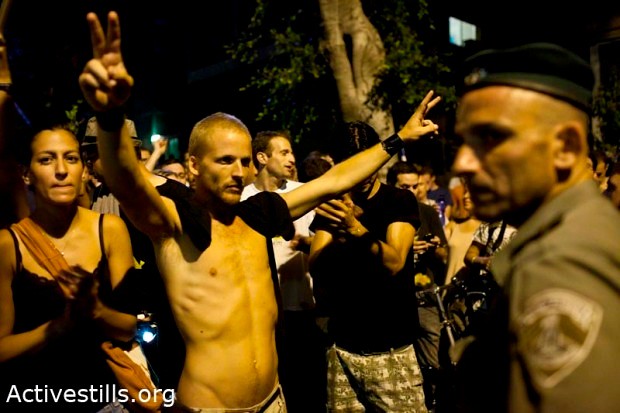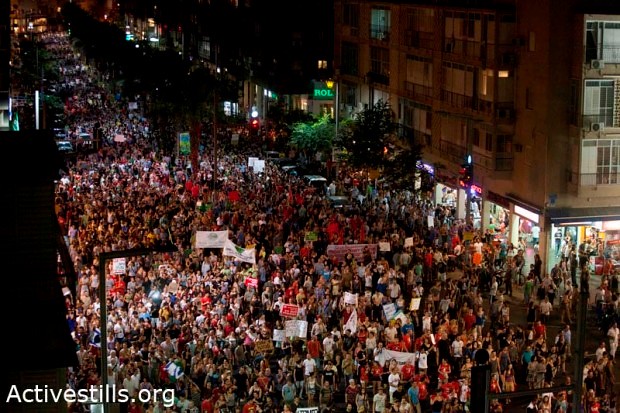Noam Sheizaf offers a good visual description of how, last week, these protests began to foment:
It happened almost overnight: Friday morning a week ago, walking near Habima Square in central Tel Aviv, I saw only a handful of tents, with no more than a few dozen Israelis who answered an internet call for an ongoing protest against rising rent costs. On Saturday evening the tents covered an entire block on Rothschild Boulevard, and protesters threw cottage cheese containers on the Likud HQ on nearby King George Street. A couple of days later, the tent protests came to dominate the news cycle.Housing minister Ariel Attias (Shas) argued that the protesters were spoiled kids that refuse to leave the fashionable center of the country, but by Tuesday there were tents in Jerusalem, the southern city of Beer Sheva and as far north as Kiryat Shmona, near the Lebanon border (see a map of all the protests here). By Wednesday protesters tried to break into empty apartments in Tel Aviv and Jerusalem; the tents on Rothschild Boulevard stretched several blocks, all the way from Habimah Square to Shenkin Street, and marches and rallies were scheduled for the weekend. The Friday papers declared that Binyamin Netanyahu sees the tent protest as the greatest potential political threat to his governing coalition.
The sign reads "Mubarak. Asad. Netanyahu."
These protests, which began as explicit anger at the rising rental prices in cities across the country, have been fueled by the response of Netanyahu's government, which initially, with hostile rhetoric, dismissed them as being part of a large, leftwing movement being funded by outfits such as the New Israel Fund. The initial rhetoric, which claimed that the protests were not about anything other than the "Zionist Left's" political agenda, only served to increase protesters' anger and resolve.
These reactions from Netanyahu and other government officials have served to broaden the protests, which have now moved from rent prices to a host of social justice issues: women's rights, union rights and education reform, among other things, with general chants of "revolution" heard on the streets last night.
What has yet to be heard, in the protests, are calls for more democracy in the wake of the anti-democratic laws that have recently been passed. Also absent has been the Israeli-Palestinian conflict.
However, as these protest spread, and all indications are that they are going to continue – as Israel's progressive left awakens – I suspect that all of the above issues will become represented by the protests, which are taking on a large, general "anti-Netanyahu" bent.
The sign reads "Women Before Profits"
For the first time, last night, Israel appeared as its neighbors have for some time. Yes, the protests may have had a different genesis, but they share a common thread: anger with the current regime.
Things may be changing in Israel.


